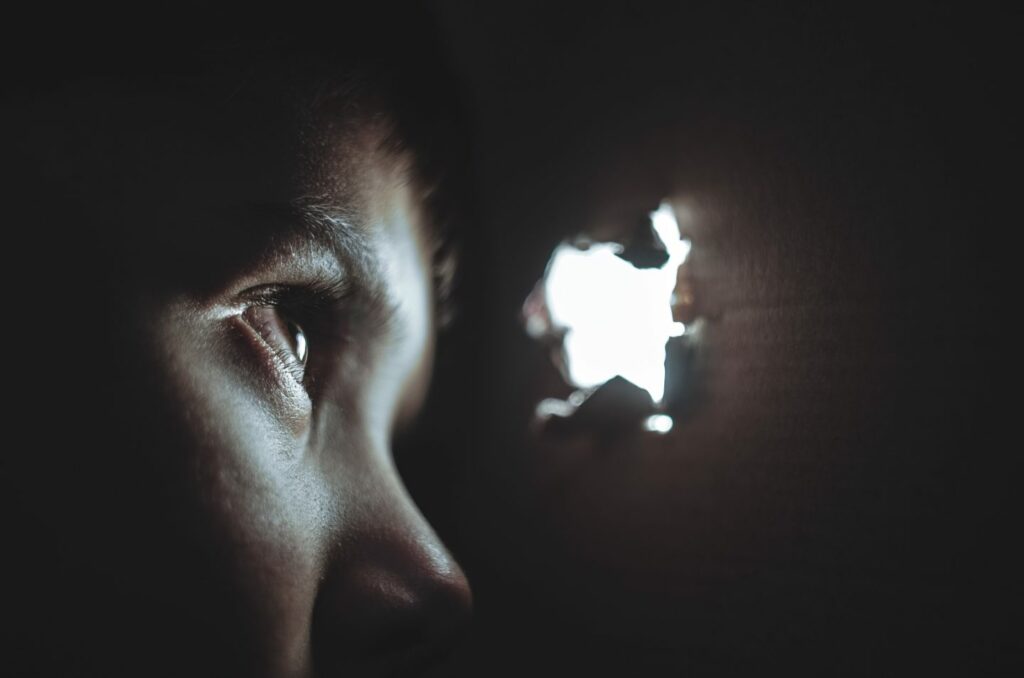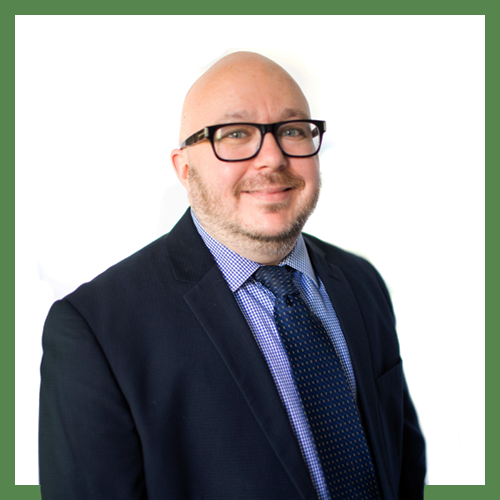COLE THALER | August 23, 2019
When squaring up to our biggest systemic problems, maybe hope isn’t quite what we need.

Last March, ten law students spent their Spring Break with AVLF, learning about the lives of Atlanta tenants who live in poverty. They learned about eviction procedures that favor landlords, and low wages that trap renters in dilapidated properties. They toured the English Avenue neighborhood, staring out car windows at one boarded-up house after another – the legacy of decades of disinvestment. They visited tenants in their apartments, then returned to AVLF’s office describing bug infestations and the thick odor of mold, and wondering aloud why Code Enforcement, health officials, someone hadn’t forced repairs.
On the final afternoon of their week with AVLF, the students and I gathered around a table at a South Atlanta coffee shop. “This week really opened my eyes,” one student said, while others nodded in agreement.

The students’ eyes turned to me, looking for reassurance or inspiration.
“I can’t believe this is happening just a mile or two from the law school,” another said.
Then a quieter student spoke up. “I just feel really… overwhelmed,” he said. “These tenants are suffering because of big systems, not because of an isolated problem they’re having. The problems are deep and systemic. I don’t see how we can have any hope of really changing things.”
The students’ eyes turned to me, looking for reassurance or inspiration.
I paused. “I’m not sure hope is necessary to do this work,” I said.
The students laughed a little, unsure if I was joking. Before I could put my thoughts into words, the stream of conversation flowed on and the moment passed.
This is what I would have liked to tell those students, and any others who may feel daunted by the magnitude of the suffering we see:
Yes, the problems are systemic. They predate us and will outlast us. Redlining, blockbusting, restrictive deed covenants, and state-sanctioned segregation (among other practices) created an impoverished, largely Black population of tenants without inherited wealth or other tools to escape the crisis of poverty. Minimum wage laws have allowed pay to stagnate, while policies favoring wealthy developers have caused rents to skyrocket. The virtual end of welfare benefits, the demolition of public housing, and the state’s refusal to extend necessary health coverage to all who need it have twisted the screws on the most vulnerable Georgia residents, shortening life spans and increasing suffering.

If some of us are suffering, but others of us have the power to ease our neighbor’s anguish in this moment, we can choose to do so.
I believe we have no hope of dismantling these systems. Not in my lifetime, or in the lifetime of anyone who is currently living.
And yet.
If some of us are trapped, and a terrible end is looming, we can still hand our thirsty neighbor a glass of water.
If some of us are suffering, but others of us have the power to ease our neighbor’s anguish in this moment, we can choose to do so.
If a family is living in raw sewage and rat nests, but a letter or a lawsuit has the power to lift that family into fresh air, we can take that action.
Italian philosopher Antonio Gramsci, in his writings from prison, adopted the motto: “Pessimism of the intellect, optimism of the will.” I want to tell the law students: yes, your intellect recognizes the systems that create and perpetuate poverty, and we cannot strategize our way past them. But your will recognizes your clients’ worth and their unlimited potential, and can drive you – us – to keep helping, one family at a time.

Kindness, compassion, using our privilege to help others: none of these things require hope. Instead, they require a commitment to easing others’ suffering for its own sake.
At a recent training I attended, Dr. Donna Beegle – who escaped generational poverty and is now a college professor – urged us not to crumble in defeat from the sheer magnitude of societal problems. “In every interaction you have with someone living in poverty,” she told us, “You have the power to give value or take it away. Everyone believes someone else has the power. But we are the system. We have power over our tone of voice, how we treat people, what resources we share with them.” We can lift people up, she explained, by recognizing their strengths, valuing their styles of learning and communicating, and opening doors for them.
Kindness, compassion, using our privilege to help others: none of these things require hope. Instead, they require a commitment to easing others’ suffering for its own sake. They require the shrinking of our horizon of focus to the micro level, where courageous and loving interpersonal connections can occur.
Students, I can’t offer you hope. But in your persistent, unglamorous service to your future clients, you may find the inspiration you are looking for.

Cole Thaler
Director, Safe & Stable Homes Project
Check out more from this author.
Cole serves as the director of AVLF’s Safe and Stable Homes Project. He oversees the Saturday Lawyer Program and the Standing with Our Neighbors Program, among others.
Before joining AVLF, Cole was a supervising staff attorney with Georgia Legal Services Program, where he represented low-income rural Georgians in a variety of civil matters. Previously, Cole worked for Lambda Legal, a national legal organization that works on behalf of lesbians, gay men, bisexuals, transgender people, and those with HIV. Cole attended Williams College before receiving his J.D. from Northeastern University School of Law. He shares his home with two rescue dogs, three rescue cats, and husband.